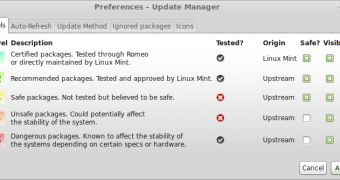After the Linux Mint and Ubuntu security updates issues entered the public eye, we are left with a simple question. How secure our systems really are?
An Ubuntu developer, Oliver Grawert, said a while ago that he wouldn't do online banking on a Linux Mint system because they refuse to implement security updates already published by Canonical.
Now, keep in mind that he is a developer and he sees these issues from a different perspective than the regular users. He actually understands how vulnerabilities can be used and why certain packages are necessary.
On the other hand, the Linux Mint creator, Clement Lefebvre, said that it was their choice to reject some updates from being installed by default, mostly because they could cause regressions and unwanted problems in their distribution.
Users still have access to those updates, but they install them at their own risk, possibly getting their favorite Mint flavor killed in the process.
This leaves the two parties involved in a sort of stalemate. On one side, Ubuntu gets regular security updates, which are shared with all the other distributions, and Linux Mint developers say that some of those updates could be harmful. Users have to make a voluntary choice to install them.
It's all about the users. Probably all the developers involved in this discussion feel that they are right, on some level, but at the end of the day, are we actually in trouble if we use Linux Mint? Is it safe to do online banking?
Most of us, the regular users, will never face the problems of vulnerability exploits. Although they exist and get patched all the time, it would mean that someone would have to make the time to use such a vulnerability on a small number of computers.
The reason why Windows computers are usually targeted is not necessarily because they are less safe (although they are easier to mess with than Linux systems), but because they are everywhere and it makes sense, as a hacker, to develop methods of attacks that affect as many people as possible, not just a small community.
Saying that because you were never attacked and that the likelihood of that happening is small, must not be used as an excuse.
The conclusion is that you are probably as safe on Linux Mint as you are on Ubuntu, but you are not as safe as you could be, if those two parties chose to work together.
In any case, the latest Linux Mint 16 RC is awesome and we can't wait to get our hands on the final version.

 14 DAY TRIAL //
14 DAY TRIAL //